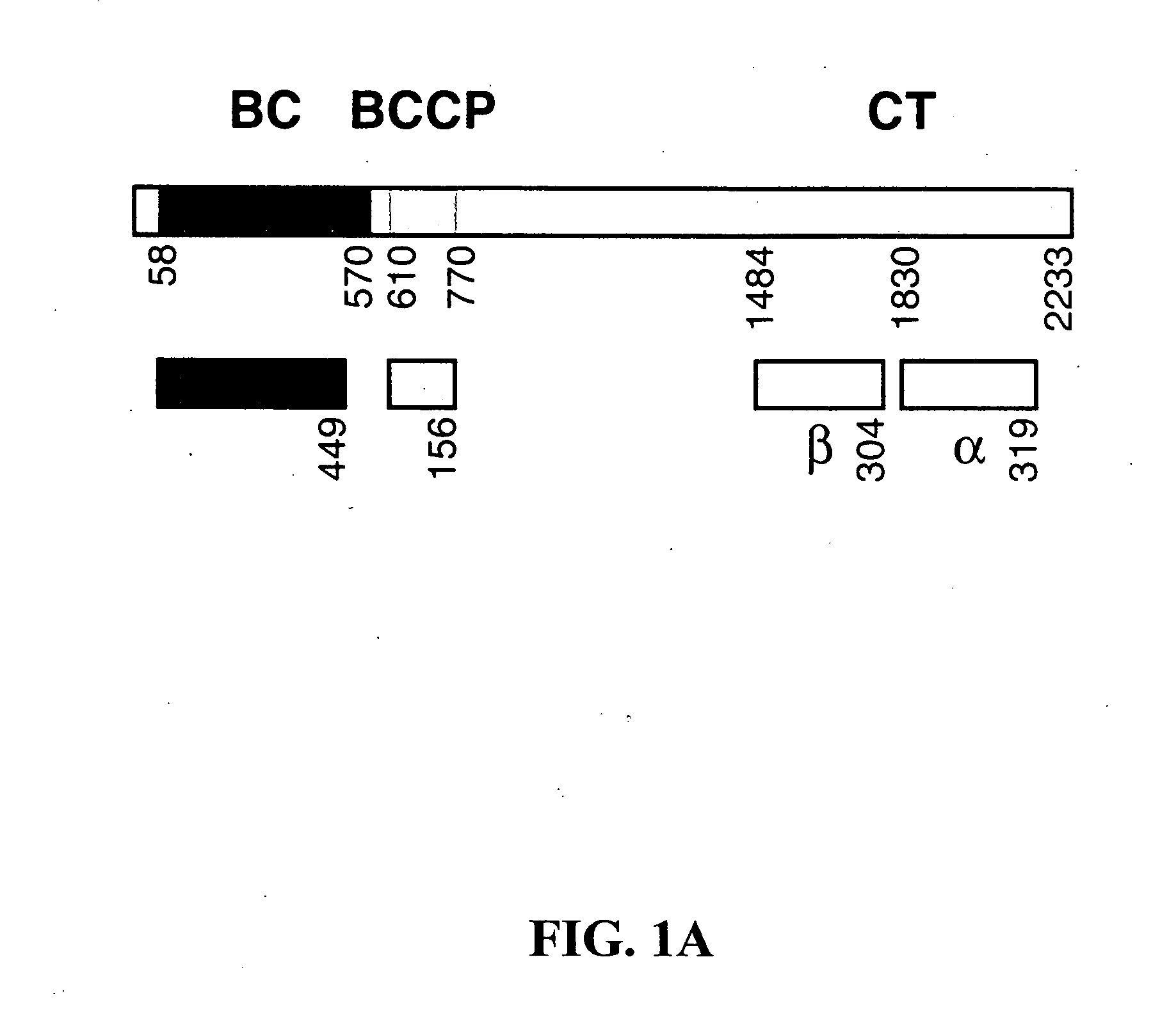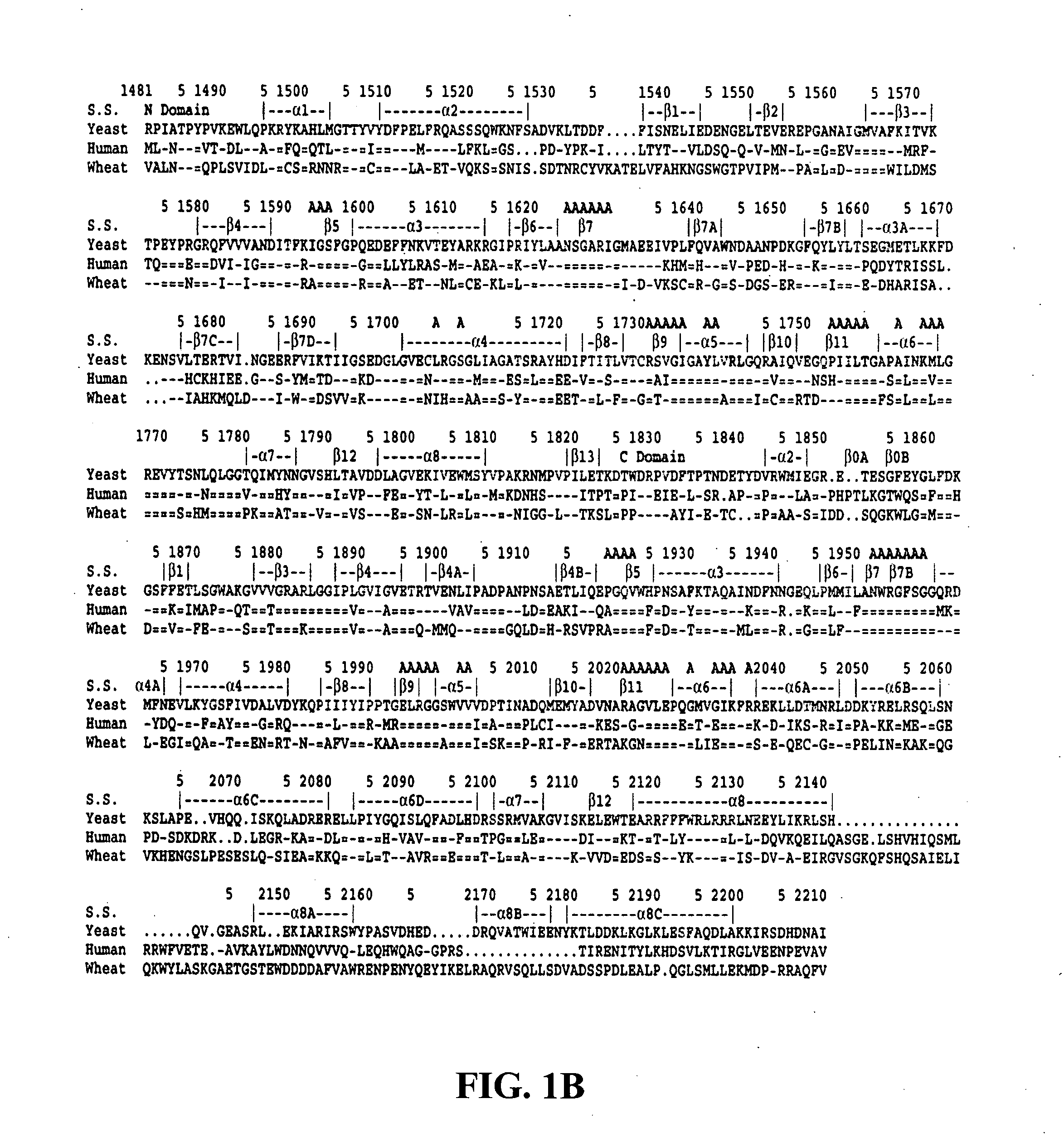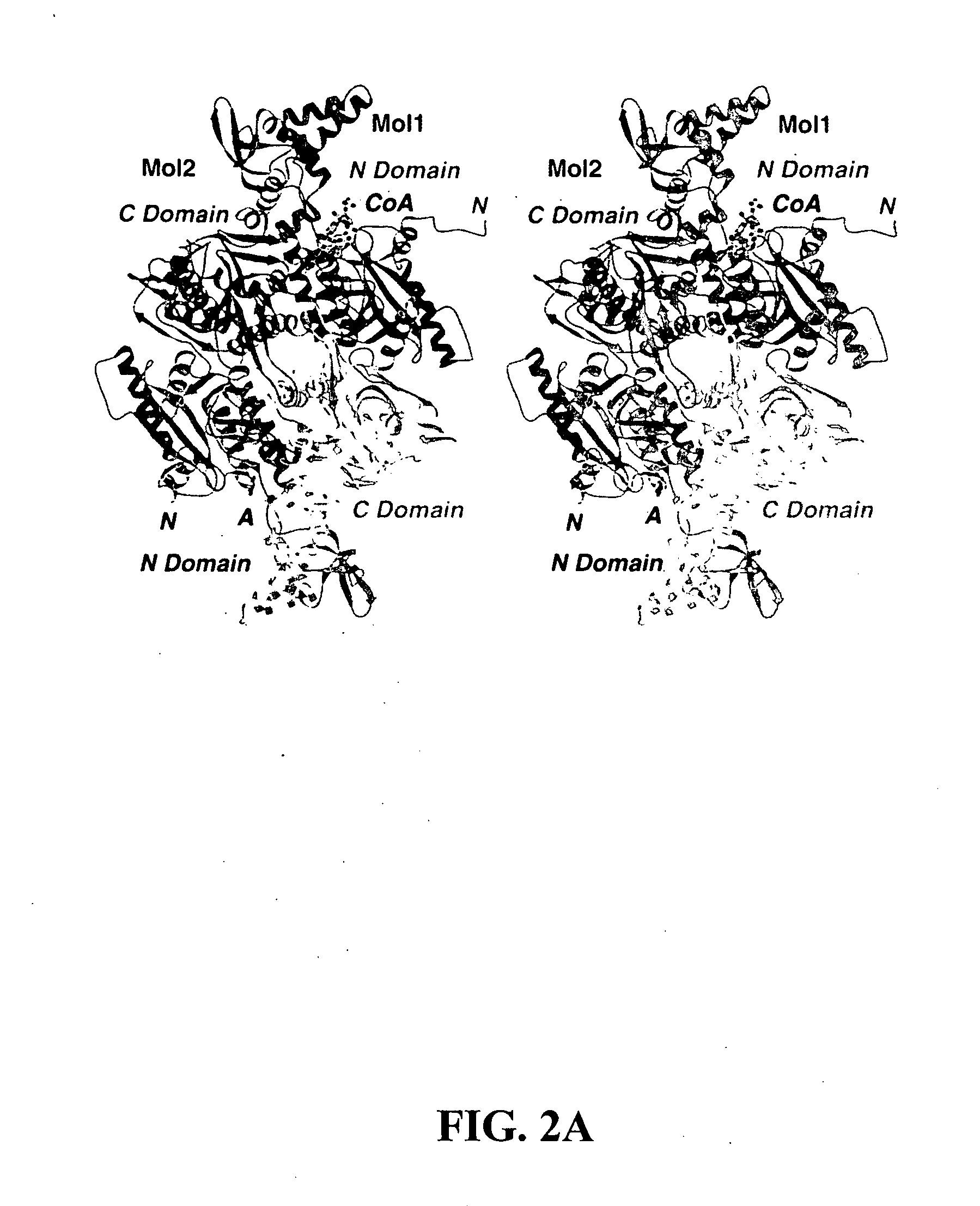Methods of using crystal structure of carboxyltransferase domain of acetyl-CoA carboxylase, modulators thereof, and computer methods
a technology of acetylcoa carboxylase and crystal structure, which is applied in the direction of transferases, instruments, peptides, etc., can solve the problems of reduced atp consumption for fatty acid synthesis, reduced body fat and body weight, and genetic ablation of acc1 in mice found to be embryonally lethal, etc., to increase or decrease the activity of acetyl-coa carboxylas
- Summary
- Abstract
- Description
- Claims
- Application Information
AI Technical Summary
Benefits of technology
Problems solved by technology
Method used
Image
Examples
example 1
Determination of the Crystal Structure of the CT Domain of Yeast ACC, Alone or Complexed with Acetyl CoA
Materials and Methods
Protein expression and purification. Various constructs comprising the CT domain of S. cerevisiae ACC were subcloned into the pET24d vector (Novagen) to produce the constructs listed in Table A, which were then over-expressed in E. coli incubated at 20° C. The soluble proteins that were produced were purified by nickel-agarose affinity and anion exchange chromatography. The proteins were concentrated to 10 mg / ml in a buffer containing 20 mM Tris (pH 7.0), 100 mM NaCl, 5% (v / v) glycerol, and 10 mM DTT. The samples were flash-frozen in liquid nitrogen and stored at −80° C. The C-terminal His-tag was not removed for crystallization. For the production of selenomethionyl proteins, the expression constructs were transformed into DL41 (DE3) cells. The bacterial growth was carried out in defined LeMaster media, and the proteins were purified using the same protoc...
example 2
Molecular Basis for the Inhibition of the CT Domain of ACC
Obesity is associated with a variety of serious human diseases, especially type 2 diabetes, cardiovascular diseases, depression, and cancer. There is clearly a critical need for therapeutic agents that can regulate body weight and obesity. Acetyl-coenzyme A carboxylases (ACCs) are crucial for the metabolism of longchain fatty acids. They catalyze the production of malonyl-CoA from acetyl-CoA and CO2, a reaction that also requires the hydrolysis of ATP. Two isoforms of this enzyme have been identified in mammals. ACC1, a cytosolic enzyme, catalyzes the first and the committed step in the biosynthesis of long-chain fatty acids. In comparison, ACC2 is associated with the mitochondrial membrane and its malonyl-CoA product potently inhibits the shuttle that transports longchain acyl-CoAs from the cytosol to the mitochondria for oxidation. Mice lacking ACC2 have elevated fatty acid oxidation and reduced body fat and body weight, ...
example 3
Expression, Purification and Assay of the CT Domain of Mouse ACC2
Materials and Methods
Various constructs comprising the CT domain of M. musculus ACC2 were subcloned into the pET26b vector (Novagen) to produce the constructs listed in Table F, which were then over-expressed in E. coli and purified as described above in Example 1.
Kinetic assays of CT activity also were performed as described in Example 1, and the activity of the enzyme was assayed in the reverse direction, i.e. measuring the transfer of the carboxyl group from malonyl-CoA to biotin methyl ester, as previously described (Zhang et al., 2003, Science 299:2064-2067).
Results
The mouse CT domain is enzymatically active and the Vmax and Km, values have been determined using malonyl-CoA as a substrate. The Vmax is 50×105 AU / s, and the Km=120 μM, comparable to the kinetic parameters of the yeast CT domain
TABLE FConstructs created and tested for production ofproteins comprising the CT domain of mouse ACC2Row1st resid...
PUM
| Property | Measurement | Unit |
|---|---|---|
| Fraction | aaaaa | aaaaa |
| Atomic weight | aaaaa | aaaaa |
| Composition | aaaaa | aaaaa |
Abstract
Description
Claims
Application Information
 Login to View More
Login to View More - R&D
- Intellectual Property
- Life Sciences
- Materials
- Tech Scout
- Unparalleled Data Quality
- Higher Quality Content
- 60% Fewer Hallucinations
Browse by: Latest US Patents, China's latest patents, Technical Efficacy Thesaurus, Application Domain, Technology Topic, Popular Technical Reports.
© 2025 PatSnap. All rights reserved.Legal|Privacy policy|Modern Slavery Act Transparency Statement|Sitemap|About US| Contact US: help@patsnap.com



